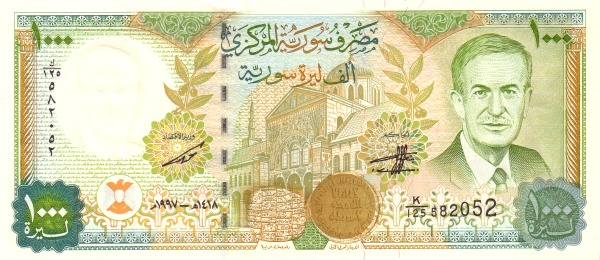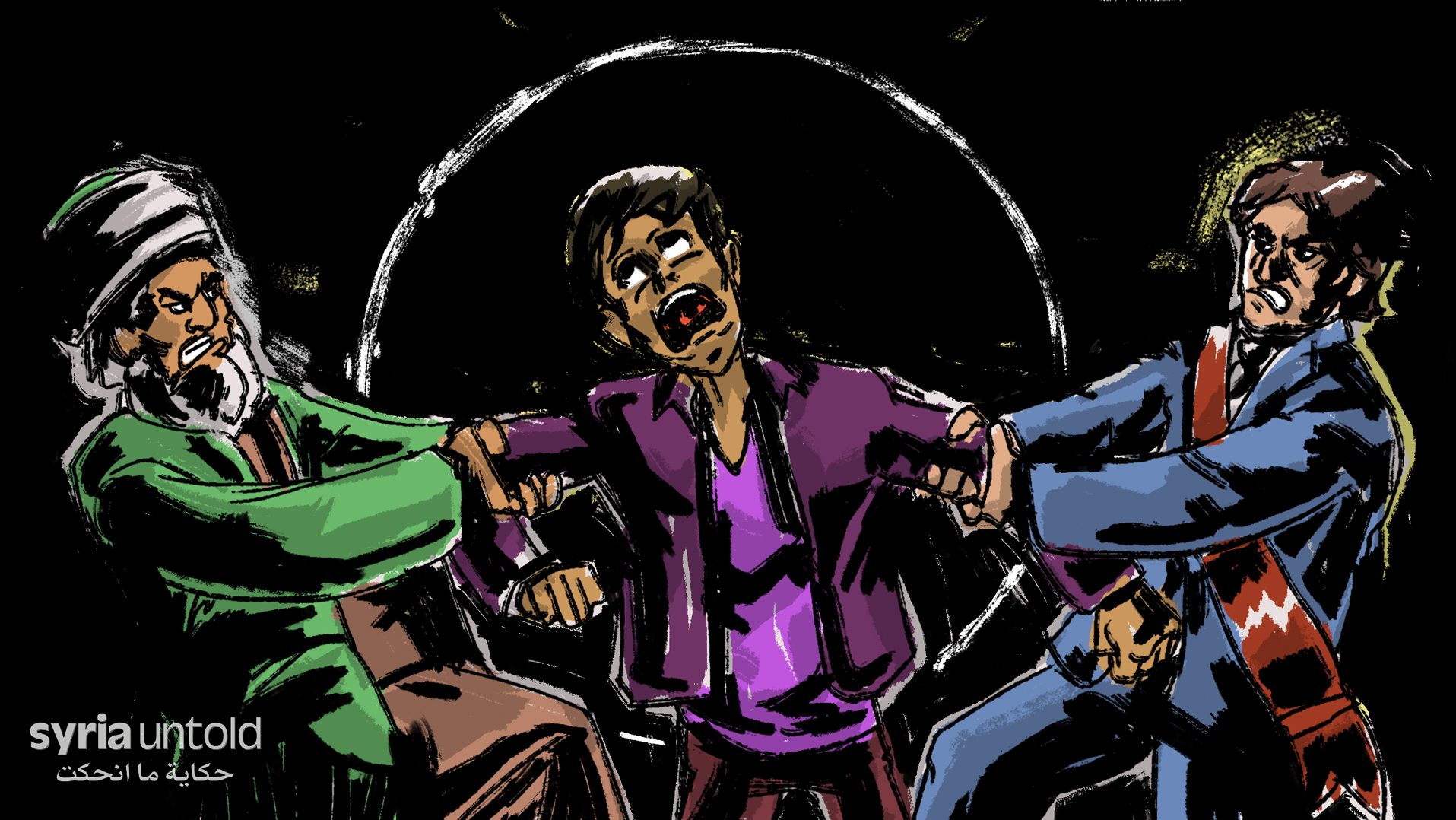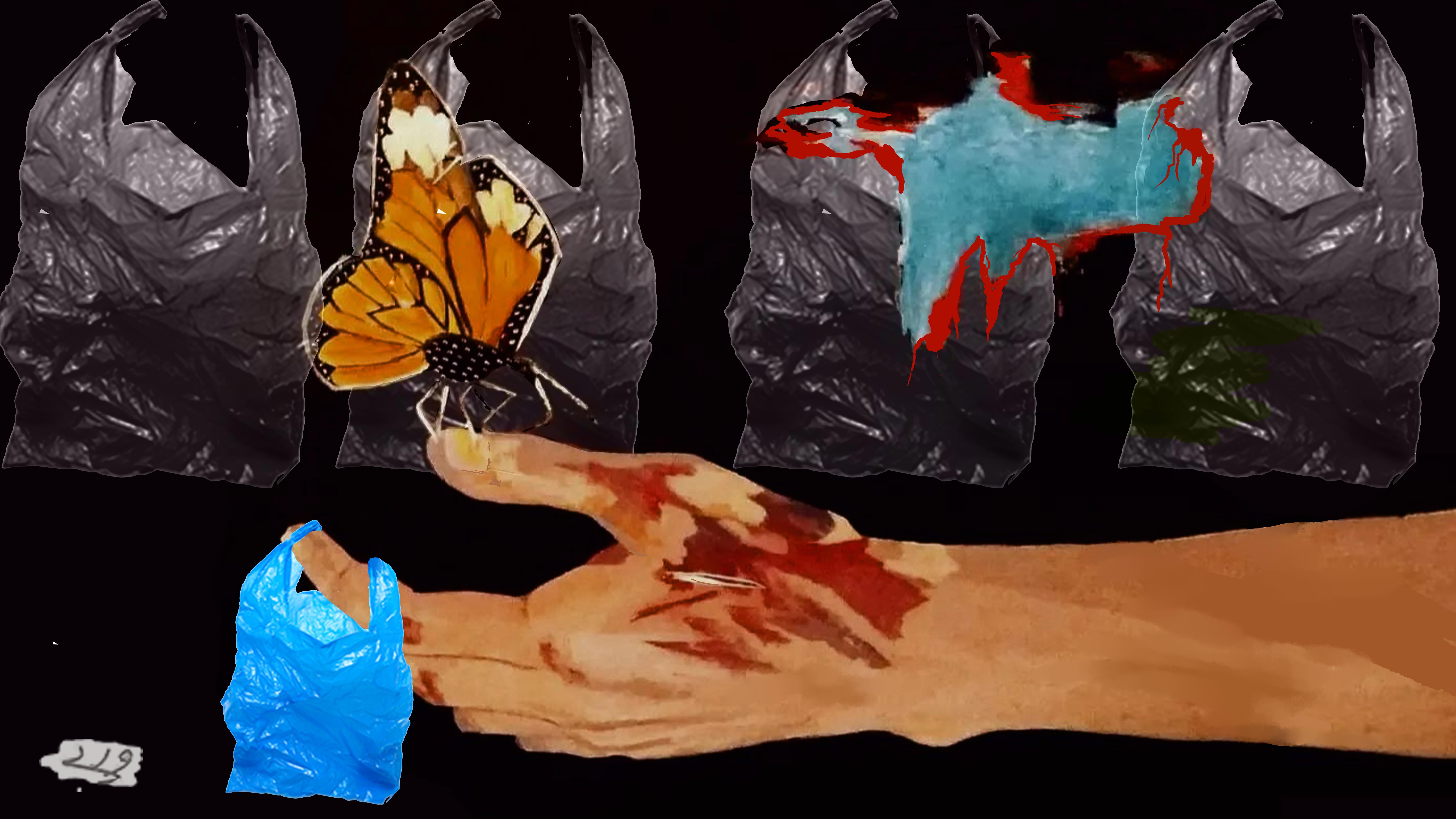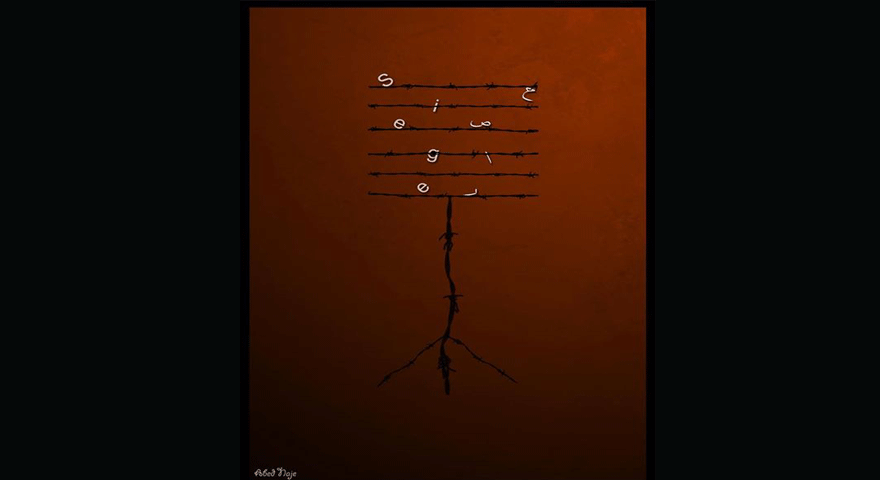"Selling Mazut in Syria is illegal. Yet my mother, like many Syrians, secretly sells her allotment yearly, sacrificing potential winter warmth for a handful of Syrian Pounds to cover her daily expenses. They keep growing at a frightening pace," says Youssef upon his return to Syria as a visitor. His mother’s case is a prime example of the conditions of Syrians forced to sell their allocations of everything, assuming they have them at all, because the word "allocations" is nothing but a misleading term in a country where its "citizens no longer recognize it or recognize themselves in it."
Nothing suggests that the electricity will be back soon. By calculation, it will return after... No, no, what calculation am I talking about?
I woke up today and the power was out. Unfortunately, I cannot provide any information about the duration of the power outage or its continuity. Despite spending thirteen days with my mother in Damascus, I'm still struggling to keep track of the power outages. But it feels like a futile effort, as nobody can predict when the electricity will come back on, and there's no sign of it happening anytime soon.
Somewhere, important people sit, controlling the electricity supply and cutting it off for Syrians for hours and hours every day. I'll refer to these individuals as "the electricity leaders" from now on, to avoid repeating their description each time.
Liberalization and Conflict in the Syrian Economy
22 December 2016
The Electricity Leaders spend their days disconnecting here and reconnecting there, and vice versa. At first glance, this might not seem like an easy task; rather, it appears to be laborious work requiring intense concentration, keen sensitivity, and profound knowledge of individuals' daily electricity requirements. With their authority, they don't follow a fixed schedule for power cuts and connections. Instead, they innovate and act spontaneously, leading to unexpected surprises with electricity. It catches you off guard, alternating between connections and disconnections, leaving you prepared for any surprise and open to all possibilities. Who knows, perhaps luck will be on your side and you can run the washing machine at three in the morning, or maybe you'll succeed in making a cup of tea if you're lucky enough to turn on the kettle, or if you're one of the "privileged citizens" who have enough gas to brew a teapot.
Gas Has a Similar Story
In Syria, gas is supplied in large, heavy metal cylinders, each weighing sixteen kilograms. Across every neighborhood in the city, government-approved distributors, whom I'll refer to as "the Gas Leaders," purchase these cylinders and sell them to citizens. This is the sole method of obtaining gas in Damascus. At my mother's house, there are four of these gas cylinders. They operate in tandem at times, and at other times, in rotation. When one cylinder empties, it's swapped out for another until the empty one is refilled, and the cycle continues.
Under normal circumstances, I would say that my mother has four times more gas cylinders than she needs. However, given the ongoing situation that has persisted for years now, I firmly believe she has less than she needs by four times. Before those past few years, it was customary to visit the gas distributor whenever we needed it, i.e., whenever we ran out of gas. Simply put, we carried the empty cylinder down, and brought it back full, carried it on our shoulders, up the stairs, or had them delivered to our doorstep at a slightly higher price. In any case, a single household did not need more than two cylinders at most, working alternately. Nowadays, Gas Leaders distribute gas to citizens based on their own preferences. To avoid any possible linguistic ambiguity, it's important to clarify that the pronoun "their" in the phrase "according to their desires" specifically refers to the Gas Leaders, not the citizens. Similar to the Electricity Leaders, the Gas Leaders believe they understand the citizens' interests better than the citizens themselves. A few years ago, families managed their own gas consumption and replaced cylinders based on their needs. However, today, the Gas Leaders determine the gas allocation for each family, considering one gas cylinder sufficient for a family for forty days. The details of what occurs when gas is cut off from homes are considered insignificant.
Leaders for Everything
In Syria today, there are leaders for electricity, leaders for gas, leaders for water, leaders for bread, leaders for rice, leaders for sugar, leaders for black tea, leaders for cooking oil, and leaders for Mazut (often pronounced "mazoutt" by some). And Mazut, is the linchpin in these lines. One day, the country's citizens awoke to find themselves all becoming Mazut sellers.
By coincidence, the story began several years ago (the same several years). At that time, not everyone worked in Mazut sales, but there were other professions: welding, baking, medicine, blacksmithing, selling, barbering, engineering, painting, homemaking, driving, painting, retirement... Many professions are found in all other neighboring and non-neighboring countries. In those years and before them, "the Mazut Leaders" sold Mazut to those who could afford it. It was no secret that they first obtained their share of Mazut and then sold the surplus to the country's residents. Back then, Mazut wasn't inexpensive, but it was relatively accessible, particularly for those with personal connections to individuals closely associated with the Mazut Leaders. Before those "several years," the price of the amount of Mazut needed annually for heating equaled almost the monthly income of that family. The figures presented here are merely estimates and offer a limited perspective on the middle class residing in the major cities of those countries prior to the "several years," but they are mentioned here for the sake of comparison. Nonetheless, that tradition has also vanished, along with the middle class we are discussing.
Mazut prices continued to rise steadily, without matching the rise in individuals' income. Some accepted their fate as determined by God in this world. Others cursed and cursed incessantly, expressing general dissatisfaction in private gatherings. Others decided to work for the benefit of the Mazut Leaders, thus obtaining Mazut before the rest of the citizens, and perhaps at lower prices. There was a category of citizens who felt the injustice, and in a moment forgotten by time, rulers, and gods, decided that Mazut, like electricity, water, bread, and medicines, belonged to the entire country and its people, rather than solely belonging to the country's leaders. This moment occurred prior to "several years," marking a crucial juncture in the nation's and the people's history.
Syria, between civil tyranny and a religious state
28 November 2019
In a small room in a neighborhood located north of the German capital Berlin, on a cold and gray day from which the sun had fled, I sat and continued writing these words that I began in Damascus, after thirteen years have passed since that "pivotal moment." More than thirteen years have passed. An era has passed since that moment. I will briefly summarize those years as quickly as possible to avoid boredom, as the events of those years have been recounted millions of times until today, by millions of mouths, and in millions of forms: oppression, exhaustion, discontent, screams, bullets, death, displacement, disappearance, defeat, frustration, retreat, collapse, inflation, poverty, shortage, bread, rationing, electricity, gas, Mazut, smart card... A smart card?!
A Smart Card
Like all Syrians, my mother, who is in her eighties with a number of years she refuses to disclose, is compelled to sell her government-subsidized annual Mazut allocations. Selling Mazut in Syria is illegal, yet my mother, like many Syrians, secretly sells her yearly allotment, sacrificing potential winter warmth for a handful of Syrian Pounds to cover her daily expenses, which keep growing at a frightening pace, ever since those "several years" ago. In a conversation with her, my mother mentions that while she can layer up more clothing in winter if she feels excessively cold, skipping lunch is not an option. The inflation rate in Syria today is thirty thousand percent (as of the time of writing these lines, and only God knows how much it will be at the time of publication). This percentage is the number three followed by four zeros to its right. What we used to buy for one hundred Syrian Pounds, we now buy for thirty thousand Syrian Pounds. Inflation in Syria is not the only record-breaking number, but also the speed at which inflation itself is inflating.
So, my mother joined the queue of Mazut sellers, as part of a general phenomenon of selling government-subsidized quotas. This phenomenon has been further exacerbated and transformed by the advent of an unprecedented device known as the "smart card." As its name implies, it's a card, and it's smart.
Selling Mazut in Syria is illegal, yet my mother, like many Syrians, secretly sells her yearly allotment, sacrificing potential winter warmth for a handful of Syrian Pounds to cover her daily expenses, which keep growing at a frightening pace, ever since those "several years" ago.
The smart card controls the quantity, timing, and location of delivering citizens' quotas of subsidized materials. For each family, there's a set number of bread loaves that the Syrian citizen purchases at a price that stays within their means, for instance. In the same smart way, the card knows how many loaves of bread you eat, how many bottles of oil you consume, how many liters of Mazut you burn, and how many kilograms of sugar you buy. The smart card can calculate your purchasing behavior in summer and winter. It can track how often you cook per week and how frequently you consume "Nawashef" (meaning "cheap dry foods" such as bread with yogurt, olives, or thyme). It knows who you are, where you are, and how far your home is from your workplace. The smart card keeps track of your rice, sugar, oil, Mazut, warmth, cold, movements, breaths, and heartbeats. It knows the depth of your political loyalty and the percentage of rebellion in your blood. It knows where you sleep and with whom. Soon, with the capabilities it has been given, it will be able to count the number of times you have or have not been able to have sex due to erectile dysfunction caused by cold or due to the high prices of condoms, which will likely be included in government support.
The smart card advises on your purchasing behavior, evaluates your consumption volume and general needs, and decides to rationalize the quantities of essential materials you require. It limits your rice portion to one kilogram per month, reduces your bread share to seven loaves per week, and caps your Mazut need at fifty liters annually. The smart card, whether with or without your consent, turns you into a seller of Mazut, sugar, tea, and gasoline. Additionally, the Smart Card Leaders determine if you are severely poor, eligible for a smart card, or merely poor, ineligible for government support entirely. Should they opt to revoke your government subsidy, you'll be compelled to buy essential goods from the market at a price you can hardly afford a quarter of. However, that currently doesn't concern anyone.
The Leader of Leaders
In Syria today, many men and women sell their government allocation at a higher price to make ends meet. The chain continues upward towards those who buy these allocations at a higher price to survive, then further upwards towards those who manage this trade from the top to fill their pockets. You witness them selling here and buying there, exploiting people's hardships and meddling in the intricacies of their lives. Presently, these individuals constitute the true leaders of the nation.
You can recognize these leaders by their characteristics. They ride luxurious black cars, unconcerned about the liters of gasoline they burn or the quantities of rationing imposed by smart cards. You see them everywhere, stepping out of their air-conditioned cars with smiles on their faces, full of life, adorned with sunglasses bearing complicated brand names. They fling their keys to valets to park their cars in places they don't care about, fill up upscale restaurants and cafes occupying sidewalks and streets. They skillfully slice meat, order various flavors of hookahs, and calmly pay for drinks with strange names and colors. They walk with confidence, scatter money bundles here and there, laugh happily, and quickly get bored of everything.
For all the leaders in Syria, there is also one leader I will name, according to the logical sequence of the conversation, "The Leader of Leaders."
The Leader of Leaders, the most content and bored of all the leaders in the country. He inherited his position from his father and still, until this moment, is uncertain about what to do with the power that has exceeded his dreams. Today, you see him sitting in his elegant palace with clean furniture, relaxing his hairy balls after a lunch of white rice and grilled fish that is easy to digest. He yawns. He fidgets. He grumbles. He picks at his Hollywood-perfect front teeth with his pinky fingernail. He presses the light switch, and it simply works. He turns on the water faucet, and the water flows crystal clear. He orders coffee, but changes his mind to a cup of green tea with herbs. He adjusts the heating if he feels cold and the air conditioning if he feels hot. His large refrigerator is stocked with abundant bread, fresh fruit, Swiss chocolate, and frozen meat that will likely spoil before he consumes it. He has fancy cars that take him and his family anywhere. He has a large television screen whose edges he cannot see, and a new computer he doesn't know how to operate. He has soldiers who worship him and senior friends who defend him if he causes major trouble. He has agricultural lands stolen from their farmers, which he invests today in growing cannabis, and large factories seized from their owners that he operates in producing narcotics. He has vast lands that he will rebuild after expelling their residences with a few explosive barrels thrown at them. I can almost hear him chuckling as he thinks about his European wife, filled with Botox, whom he accidentally won on a leisure trip to England two decades ago. An elegant lady wearing Coco Chanel and shopping for crystal chandeliers and fur coats from Harrods stores, an intelligent woman who dominates the country's economy after expelling the corrupt who stole the country and sat in their place. She imports cell phones, takes pictures with cancer patients, and gives a wounded patriot's wife a goat or a wall clock, speaks Chinese on Instagram, and invests in development. A true desert rose. He also has young children who excel unprecedentedly in science, mathematics, languages, charity work, and sports. They win (whether they participate or not) the first and second places in all equestrian competitions. What else does he want? He cannot ask for more in his life. He has everything he needs, and everything the people need. He has everything, absolutely everything, and it is very possible that he even owns a smart card or two, and that he, like my mother, secretly sells Mazut.









